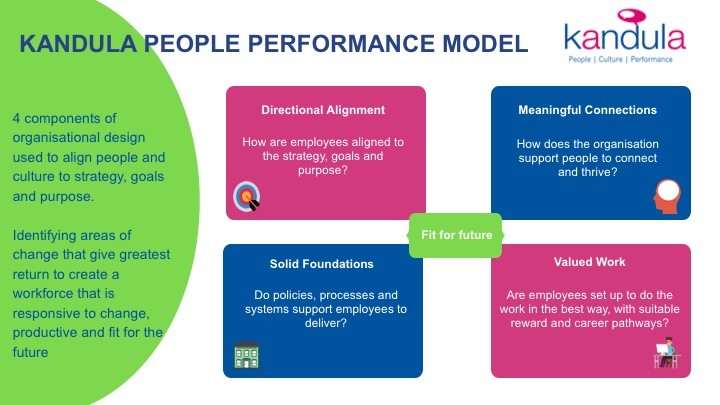From all the things that I’m seeing and hearing at the moment, about how organisations are responding to Coronavirus, it feels as though things are settling slightly. Many organisations and the people within them are adjusting to the current normal; business continuity plans have kicked in to action and new ways of working are taking shape. Some are talking about this being the new normal, whereas others think we’re riding the first wave and there are more waves of change to come.
With lockdown continuing for at least another 3 weeks, it seems to me, that now is the time for organisations to be thinking about what next. We now have a new current normal but things will soon change again. An immediate challenge for SME’s is to consider the future, while managing the present crisis. Key for organisations to manage the waves of change ahead is to start planning now. A starting point for organisations could be asking 3 questions:
- What is happening now that we want to keep?
- In what way do our strategy and goals need to change?
- What do we want to be different in our future way of working?
There are many opportunities and issues for leaders to consider for this next wave. Let’s look at one change that is real to many now – working from home.
Redefining flexible working and working from home
The move to working from home has challenged many organisations over the last few weeks. It has been amazing how so many organisations have been able to make this shift; often challenging the way IT is managed, security is maintained, engagement happens, and leaders lead. It has been a fundamental shift in mindset and practice that is testing the previous status quo.
It’s a subject that is dividing opinion about the implications for organisations in the future and I’m wondering how decisions about a working from home / flexible working policy will be taken.
My hope is that organisations start to plan now to manage the consequences of this so the decisions about a working from home / flexible working policy are taken with the right context and thinking.
Some conversations I’ve had reflect the way different organisations are thinking about the next steps.
- The CFO who sees ways of saving money by reducing office space, so wants to bring in working from home more permanently
- The Manager who has young children and found it difficult so wants to get everyone back to work
- The analyst who loves it as he gets more done and thinks it should be continued
All of these are valid reasons based on personal experiences, but are they good reasons for any decision making about working from home in the future? I’d say not. Working from home is part of a broader discussion about an organisation’s flexible working policy. With so many views on this subject, decisions could too easily be based on emotion and recent personal experience, rather than what is right for the organisation’s strategy, performance and culture.
Planning for the waves – a way forward
Using the Kandula People Performance Model it’s possible to understand the complexity of the decision about flexible working. It’s a decision that should take in to account the organisation’s strategy and goals to ensure that the necessary productivity is achieved. The planning of future ways of working can be developed with the People Performance Model. Here are some things to contemplate through the lens of all 4 components:
Directional Alignment
Working from home changes the way an organisation connects its people to its strategy and goals. It can have implications on performance and how this is monitored and measured, it changes the style of leadership and the way leaders communicate.
Solid Foundations
Firstly it’s likely to require the rewriting of many HR, IT and risk policies. Training may need to be done differently. Managing the safety of employees would need to be reconsidered and it would bring about changes in the use of office space.
Valued Work
If a large percentage of the workforce are working from home, organisations may look to restructure and consider how to make work meaningful. The shape of the team could change depending on who needs to interact with who and the whole reward structure may need reconfiguring. In addition, an organisation may question where work needs to be done and what their recruitment approach needs to be.
Meaningful Connections
If an organisation is looking at continuing to have people work from home, then finding ways to connect the organisation will need to be reviewed. Communication channels may need to change, processes for gaining feedback could be introduced, revisiting and restating the organisation’s purpose would be required. Working from home shifts the relationship with the employee, therefore new mechanisms and programmes may need to be introduced to manage employee’s health and wellbeing. Another area to review would be the type of benefits that are offered. And culturally, what is required to build trust for all?
Asking questions related to our People Performance Model helps organisations to connect this important shift in ways of working to the organisation’s strategy. It creates the opportunity to think through the longer term implications and consequences.
Using working from home as an example of a significant shift that has taken place, I hope to have highlighted the complexity of just one decision that changes the fundamentals of an organisation. By thinking about the future approach using the Kandula People Performance Model, it is likely that there is a different solution. This new solution will be different for each organisation and may sit somewhere between the way we worked pre Covid-19 and the way we’re working during lockdown.
The impact of Coronavirus will be different on every organisation. For many it means that the pre Covid-19 status quo, won’t be applicable for the future. There needs to be a new version of the organisation, a version that requires purposeful planning now. This highlights the need for leaders in the organisation to spend time now on planning for the future, bringing together the right people who can create innovative and creative solutions that build resilient and robust organisations for the future.
As a reminder, the Kandula People Performance Model shows the different components that need to be in place for people within a business to be productive, engaged and flexible to adapt to change It’s the ecosystem where all parts need to work well for every organisation to thrive or may be survive.
Contact me directly for more information about using this model and working with Kandula Consulting to tackle some of your big business challenges.



